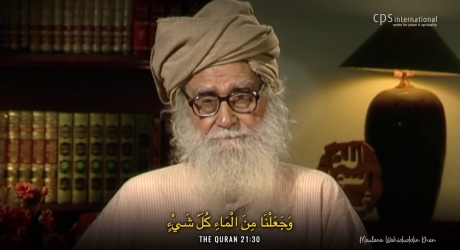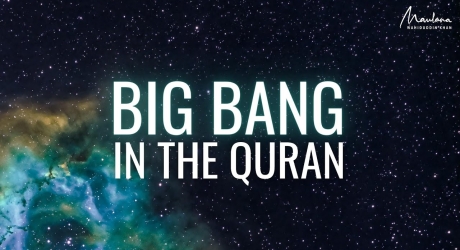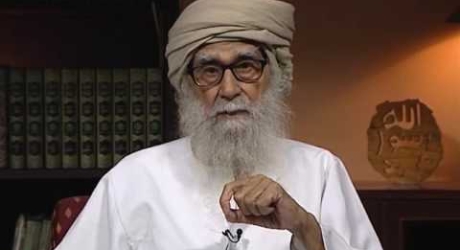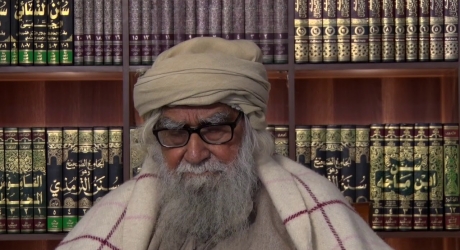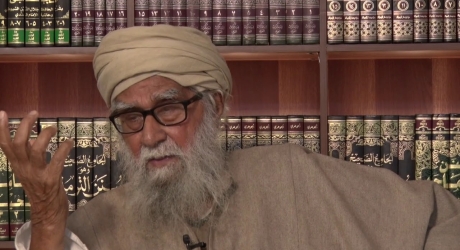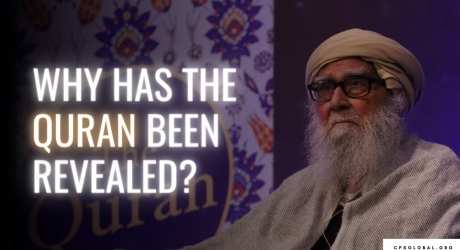The Quran says: “Do not the disbelievers see that the heavens and the earth were one solid mass (ratq) which we tore asunder (fatq) …” (21:30) Ratq means wholesomeness and compactness, while fatq is the opposite: disintegration. Modern studies in astronomy have confirmed the truth of this concept; various observations have led scientists to postulate that an explosion formed the universe from a state of high density and temperature (the ‘big-bang’ theory) and that the cosmos evolved from the original, highly compressed, scorching gas, taking the form of galaxies of stars, cosmic dust, meteorites and asteroids. The present outward motion of the galaxies is a result of this explosion. According to the Encyclopedia Britannica (1984), this is ‘the theory now favoured by most cosmologists.’ The more science advances, the closer it comes to God. One is compelled to agree with what Dr Maurice Bucaille writes in the following paragraph of his book, The Bible, the Quran and Science: “Given the level of knowledge in Muhammad’s day, it is inconceivable that many of the Quran’s statements connected with science could have been the work of a man. It is, moreover, legitimate not only to regard the Quran as the expression of a Revelation but also to award it an extraordinary place on account of the guarantee of authenticity it provides and the presence in it of the scientific statement which, when studied today, appear as a challenge to explain in human terms.”
I want to speak about something which was unknown before 1927. An event that happened 15 billion years ago was unknown until 1927. But the Quran had already spoken about it in the 7th century. That is, 1300 years ago.
How did someone get to know this? The Quran was revealed in the 1st quarter of the 7th century. 1300 years after the Quran, in 1927, humans came to know that the Big Bang happened. There was a super atom that exploded. How did someone come to know this? This means that there is someone beyond space and time. He knew about things when no one else could see or know. The Quran has two verses about this: أَوَلَمْ يَرَ الَّذِينَ كَفَرُوا أَنَّ السَّمَاوَاتِ وَالْأَرْضَ كَانَتَا رَتْقًا فَفَتَقْنَاهُمَا (21:30) The two words in the Quran are ratq and fatq. Ratq refers to something joined together. Fatq means to split open.
The Quran says that the heavens and the earth were joined together, and then We split them asunder. This is same as the idea that there was a super atom which was split up, and that led to the universe. The heavens and the earth were joined together and We split them asunder by an explosion, which formed the universe. Another verse says: Copy Arabic text (14:10) Fatir literally means one who splits open or breaks something apart.
Do you have doubts about God who split up the heavens and the earth? If you read commentaries, the word fatir is defined as one who creates. Do you have doubts about God who created the heavens and the earth? Fatir doesn’t mean to create. The literal meaning of fatir is not one who creates. But because this was unknown, everyone including Muslims were unware of it, even after the revelation of the Quran. That there was an explosion in the heavens and the earth is something about which the whole history had been unaware. When this verse was revealed in the Quran, even Muslims and commentators on the Quran were unaware of it. Fatir doesn’t mean one who creates. It means one who splits something apart.
This is a clear proof that the Quran was revealed by a Being who knew about matters when people were still unaware of them. We learn two points: first about God's existence, and second that the Quran is God's book. This world has a God, and the Quran is a book of God.





